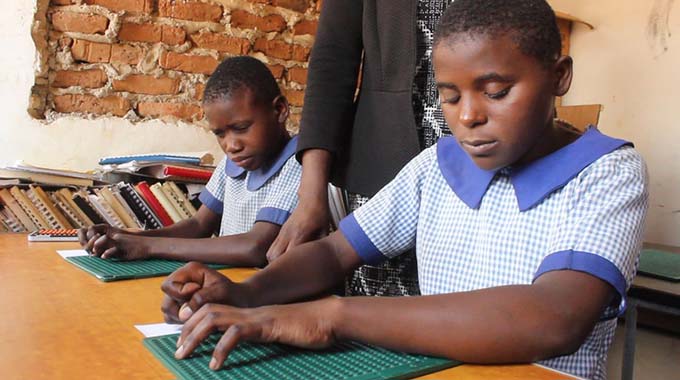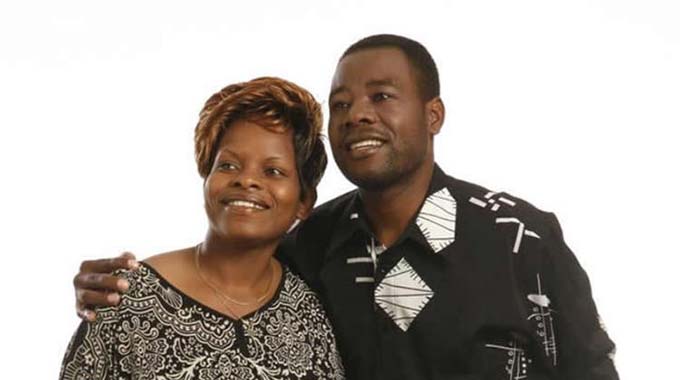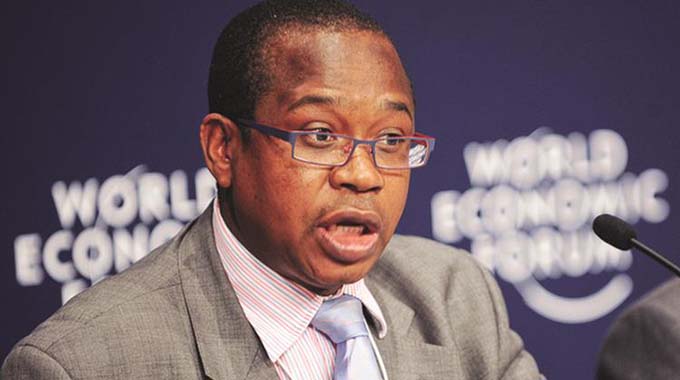Inclusive education funding dilemma

Mirirai Nsingo
Its break time, pupils are having cowpeas, they will have the peas again for lunch with sadza this time and the story goes on for dinner.
These are pupils living with disability at a makeshift boarding school at Mahuwe Primary School, Mbire District in Mashonaland Central and this is what the school can afford from its funds.
Once in months, they have goat meat from the school goat rearing project which is just starting. The girls at the boarding school live with a lady teacher whose spare room has been turned into their boarding house while the boys stay with a male teacher.
The school is struggling to cater for the needs of these pupils outside the classroom yet determined to see the inclusive education programme work, they have to do with available resources and sometimes with the help of well-wishers, they get food, toiletries including sanitary wear for the girls.
It is not easy, says the headmaster. “We started inclusive education programme at this school in 2011 to accommodate children with all forms of disabilities. Given the long distances most of them have to walk everyday, accommodating them at school was the only option.
“We used to get funding from the Government but that stopped some years ago and so we use school funds paid by other pupils to support them. Here and there we get donor support but it has been erratic hence not enough. We even get support from the community,” says the headmaster, Obert Tembo.
Their plight mirrors that of several schools across the country that have adopted the Government’s Inclusive education programme that seek to see all children living with disabilities accessing education.
The school head adds that through support from Save The Children and Leonard Cheshire they have been able to make infrastructural adaptations such as construction of ramps and disability friendly toilets as they seek to improve the environment at school making it habitable.
“The adaptations include the construction of ramps, pathways, disability friendly toilets and furniture. One of the impediments for successful inclusion of children with disabilities in mainstream classes is the unavailability of assistive devices such as spectacles, wheelchairs, artificial limbs, walking cans and Leonard Cheshire has assisted our children with all these,” adds the head.
An Education Officer with Save The Children, Beatrice Gambiza says the informal boarding schools were set up by the Government for easy management and accessibility and the Government has been providing support grants but these have not been coming since 2016.
“We have tabled this with the Ministry of Education as the grants are necessary in the implementation of the programme. Inclusive education has impacted positively in Mbire District given the fact that children were out of school due to disability.

“Parents have been empowered and now accommodate and bring them to school. These children have been screened and given assistive devices ranging from wheel chairs, spectacles and prosthesis with some being referred for surgeries that have been successful.
“I hope the Government will revive the grants with its absence threatening the viability of the programme,” says Gambiza.
Project officer for Leonard Cheshire Disability Zimbabwe, Martin James says the Inclusive education programme was the best thing that ever happened to children living with disabilities in Zimbabwe as most of them could not access education due to various obstacles.
He however, admits that inadequate funding was a threat to the viability of the programme noting that children with disabilities encountered various challenges in their lifetime, from stigma within the family, to community and sometimes at school.
“Society from time immemorial is sceptic something ‘different’ and this is no different when it comes to children with disabilities. The negative attitude is even embodied in our language and it is such salient negative attitudes towards disability that makes parents hide them while missing school.
“Most of the children need support to withstand glares and stares from an unforgiving society that regards disability as a curse from the gods,” says James.
He further argues that given the harsh economic times that we are in, it is even worse for a girl, it can be regarded by some as a waste of resources to educate a child living with disability “who has no hope of getting a job one day let alone has a zero chance of finding a prosperous mukwasha.”
James says while Special schools like Jairos Jiri, Emerald Hill, King George VI are available for children with disabilities, the schools cannot take all of the children as the numbers have greatly increased over the years and they are also out of reach for many due to their expensive nature hence the inclusive education programme was a necessity.
“Such schools cannot take all children living with disabilities as the numbers have greatly increased over the years in population while no new schools have been opened apart from these ones to accommodate the pupils.
“So the inclusive education programme came in handy as it saw more children being identified in communities and I can attest that the numbers of children with disability who have enrolled in schools have increased.
“However, as you saw at Mahuwe Primary School and other schools in the districts, the schools are grappling to see the programme work due to a myriad of challenges and more support is needed.”
Teacher and champion for inclusive education, Ticha Muzavazi also believes inclusive education was the way to go if all children living with disabilities are to access education although he is quick to note that the programme needs full support for it to be a success.
“Inclusive education is about making sure that children or learners with disabilities access education on an equal basis with others in the communities in which they live. It is possible, inclusive education ensures awareness of disability before people become adults.
“We are not yet there but I see hope for success from the initiatives taking place about this time-midway towards 2022 but I continue to call for more support from the Government and its partners to make this a success, no one should be left behind, education for all.”








Comments